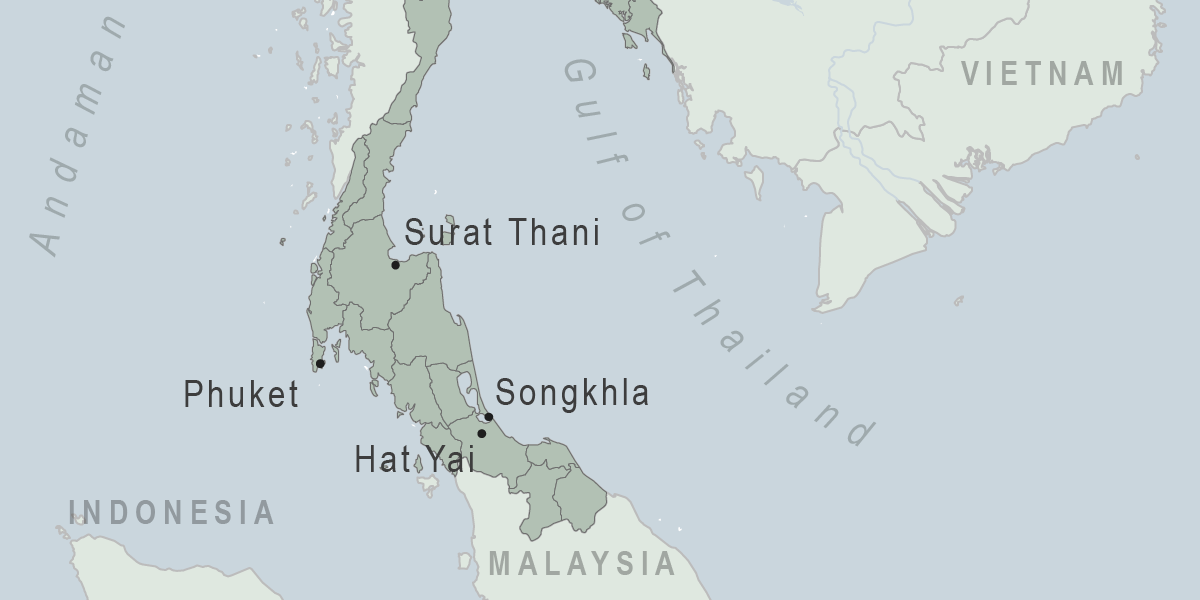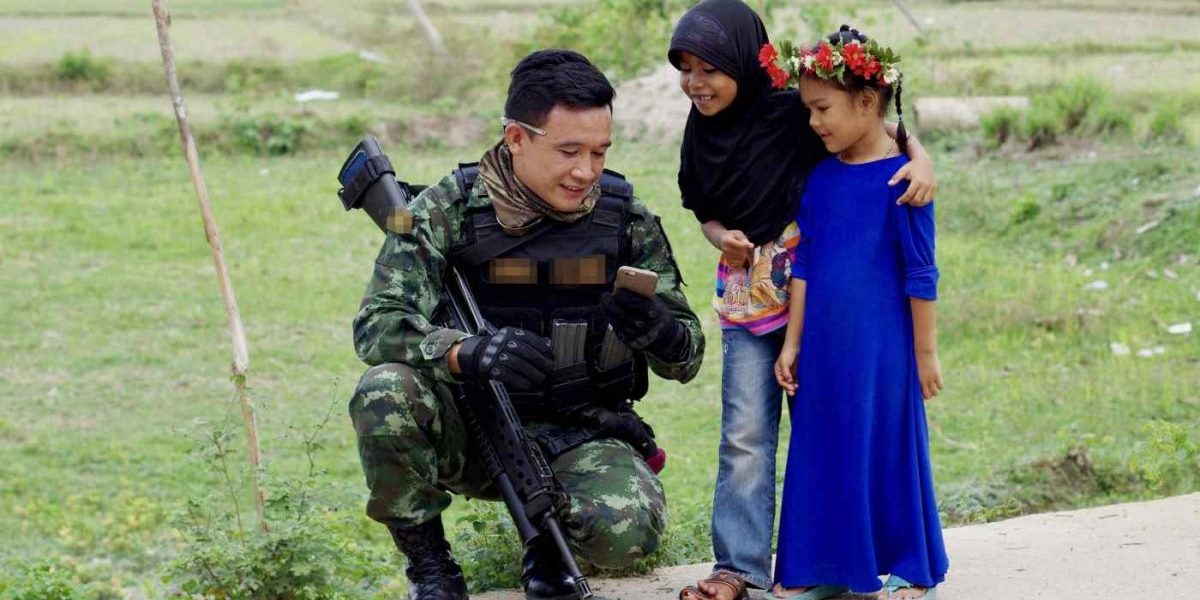On Tuesday, southern provinces of Pattani, Narathiwat and Yala of Thailand was rocked by a series of blasts and arson attacks. Reportedly the attacks occurred mostly at small shops and gas stations. At least six civilians were reported injured. No insurgent group has claimed responsibility for the attacks so far.
The Police Captain Sarayuth Kotchawong stated that shortly before midnight a suspect had entered a shop at a gas station in Yala’s Yaha district. He placed a black bag inside and warned employees to leave if they do not want to die. The workers left before the bag exploded a few minutes later. There were total 11 attacks at many 24-hour convenience stores and gas stations in the provinces of Pattani, Narathiwat, and Yala. These provinces have Muslim majority population among which there are several radical insurgent groups. According to military spokesman Pramote the attackers were on motorcycles and in many cases threw petrol bombs at their targets.
Prime Minister Prayuth Chanocha has condemned the attacks and called them “outrageous”. He has ordered immediate investigation and arrest the suspects. He has also advised the officials to be extra cautious and take safety precaution towards locals.

However despite the government’s deployment of 40,000 security officers in the region, Thailand got rocked by these series of blasts. They are mostly small weapons attacks, assassinations, and bomb blasts are common in the region.
The conflict is deeply rooted in historical tensions and mistrust. The said provinces in southern Thailand has a significant border with Malaysia. This region is extremely volatile and have seen a decades-long, low-level rebellion. The Thai government has battled several big and small insurgent groups. Theese group sought independence for the predominantly Muslim provinces of Pattani, Yala, Narathiwat, and parts of Songkhla. These provinces are Malay-speaking, especially Patani which came under Siam’s control in 1785.

Since then, Buddhist-majority Thailand (then Siam) has aggressively pursued a policy of assimilation. This was rejected by the Malays as an infringement on their cultural and religious identity. With Muslim population these provinces have faced discrimination from the Buddhist-majority and have been treated like second-class citizens. Many in this community hold that the region belongs to the Malay people and that the community has a moral obligation to liberate it from invading Siamese/Thai forces. An estimated of 7,300 people have been killed in the conflict since 2004.
Thai government restarted discussions with the main rebel group, the Barisan Revolusi Nasional earlier this year. The discussion went on a two-year hiatus due to the COVID-19 pandemic. Also peace talks that began in 2013 have faced repeated disruptions. The Patani United Liberation Organisation (PULO), which was sidelined from the latest round of talks, carried out bombings during the Muslim holy month of Ramadan. They claimed that the dialogue with the government was not inclusive.
 A soldier in south Thailand with Muslim girls
A soldier in south Thailand with Muslim girlsThe organization’s leader, Kasturi Makhota in an official statement claimed that the latest attacks have “nothing to do with PULO”.
The government has made it clear that it is ready to talk to all groups. The rebel groups in the south have a pattern of stage hit-and-run attacks. They are also known for occasional coordinated attacks when seeking to make a political point with a show of strength. Several gunmen killed 15 village defense volunteers and wounded five security personnel in November 2019. This was known as the deadliest attack on government forces since the rebellion began.

